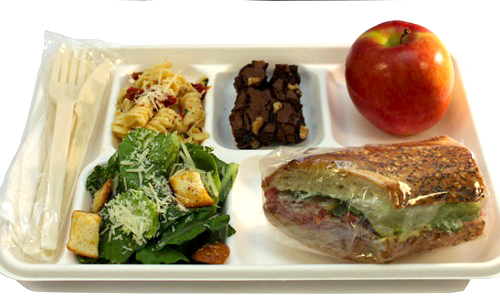

Replacing non-biodegradable polystyrene trays with a compostable version is the first target of a pioneering attempt by six big-city school systems to create new markets for sustainable food and lunchroom supplies.
The Urban School Food Alliance—whose members are public school districts in Chicago, Dallas, Los Angeles, Miami, New York and Orlando, FL—hopes to persuade suppliers to create and sell healthier, cheaper and more environment-friendly products by combining their purchasing power.
Replacing the polystyrene trays with compostable plates are the alliance’s first objective. New York and Miami are running pilot programs and another 30 schools are expected to join in about two weeks.
The alliance hopes to keep a lot of trash out of landfills and save money for other uses. A test run of the program last year reduced cafeteria waste by 85 percent in eight schools.
If all goes as planned, the compostable plates will replace styrofoam lunch trays by September for more than 2.6 million students nationwide. That could add up to some 271 million plates annually that will no longer be burned as trash or buried in landfills.
The alliance’s next target is healthier food and leaders are now considering suppliers of antibiotic-free chicken. Future initiatives could include sustainable tableware, pesticide-free fruit and goods with less packaging.
Short-term environmental and health benefits, such as reducing antibiotic use in food animals, are not the only goals, Eric Goldstein, the chief executive of school support services in New York City, told the New York Times. Using recyclable plates or serving healthier chicken sets an example students may carry into adulthood, he said, and sets a standard for other school systems.
The foam trays used in many districts are made from petroleum byproducts and can be quickly manufactured in large quantities. The compostable plates, which are made from sugar cane, take longer to make and require more machinery to produce in volume.
The Natural Resources Defense Council (NRDC), as part of its overall food advocacy work in New York and around the country, is working with the alliance.
“Like these school districts, we see huge potential through this unique coalition to build new national markets for sustainable food and other products,” Mark Izeman, NRDC senior attorney and director of the New York Urban Program, wrote this week in his blog.

 233k
233k  41k
41k  Subscribe
Subscribe 

